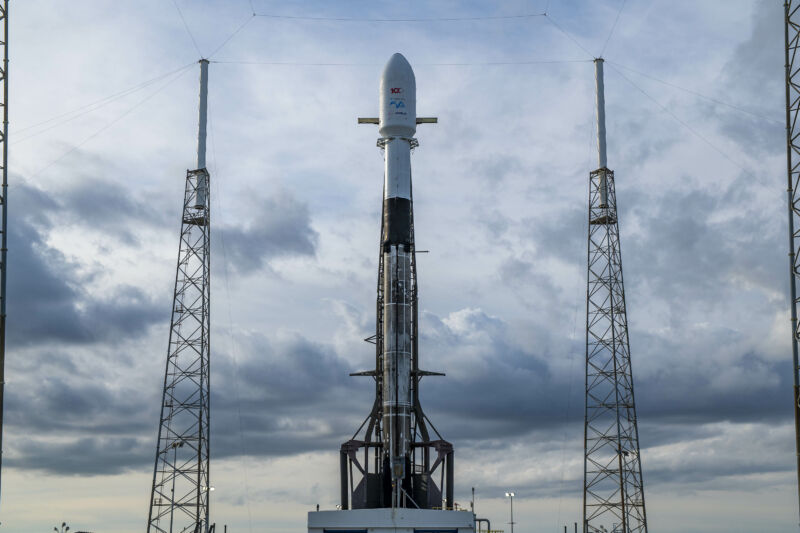
9:30pm ET Thursday: SpaceX’s Falcon 9 rocket successfully launched on Thursday evening from Florida, sending a communications satellite toward geostationary transfer orbit. The rocket’s first stage then returned to Earth and made a safe landing on the Just Read the Instructions droneship.
Notably, this was the 50th launch of previously flown Falcon 9 first stage. It has only been five years and a few days since they landed their first one, and less than four years since the company re-flew one. The company’s next Falcon 9 launch attempt may come as soon as January 14, with the Transporter-1 smallsat rideshare mission.
Original post: SpaceX will seek to kick off what promises to be a busy year of launches on Thursday evening, when a Falcon 9 rocket is scheduled to launch the Turksat 5A communications satellite. The 3.4-ton satellite will be deployed into a geostationary transfer orbit.
The launch will take place from Space Launch Complex 40 at Cape Canaveral Space Force Station in Florida. The mission has a four-hour launch window that opens at 8:28pm ET (01:28 UTC Friday), with a backup opportunity a day later. The weather forecast is generally favorable, with a 70 percent chance of “go” conditions on Thursday.
The mission will use previously flown hardware for both the rocket’s first stage, as well as the payload fairing. This will be the fourth flight of this booster core, which previously launched a GPS III satellite for the US Space Force in June 2020 as well as two Starlink missions for SpaceX, most recently on October 24. Each half of this mission’s payload fairings has also flown one earlier mission.
This launch continues the trend of SpaceX using increasingly experienced first-stage rockets for commercial missions. In December, for example, the company flew a communications satellite for Sirius on the seventh flight of a first stage.
In an interview, SpaceX president and COO Gwynne Shotwell told Ars that customers are confident in “flight proven” rockets and that it’s typically left to SpaceX to determine the best rocket for each mission. “You’re buying a launch service, and we will provide you the best vehicle that we can in the timeframe that you need to fly,” Shotwell said she tells customers. “And we basically put the control for the most part in our hands.”
It’s not clear how many Falcon 9 rockets SpaceX will launch in 2021, but barring catastrophe, that number will be high. Amid the pandemic in 2020, SpaceX managed to set a record for total launches, with 26. The company will likely eclipse that with several missions each for NASA, the Department of Defense, and commercial customers on top of its own plans to build out its Starlink Internet constellation and provide service to more US households and businesses.
The Turksat 5A mission will be webcast, with the stream below beginning about 15 minutes prior to liftoff.
https://arstechnica.com/?p=1733549

